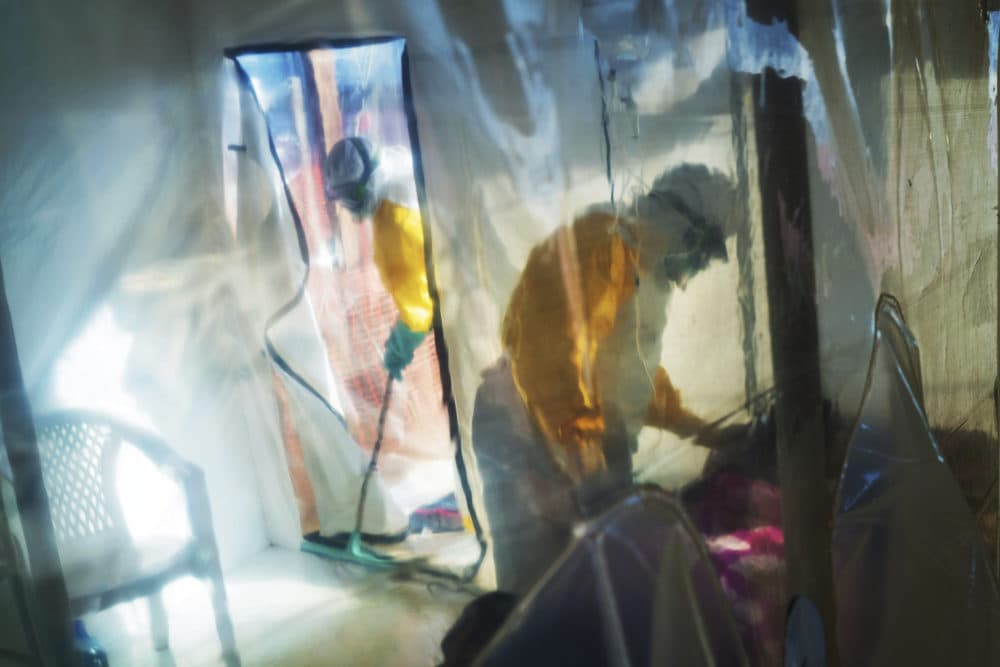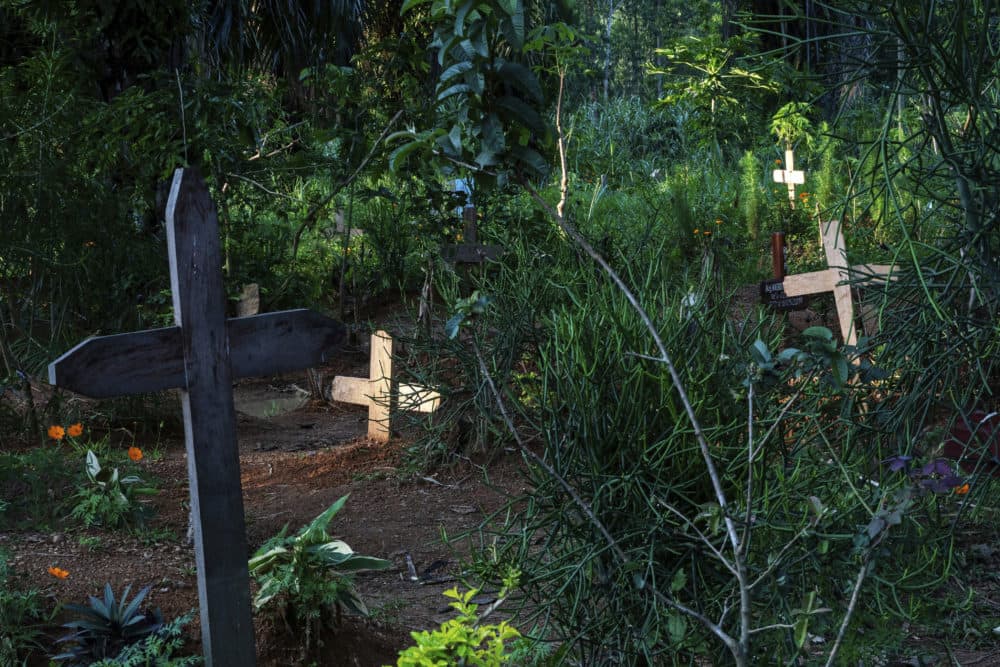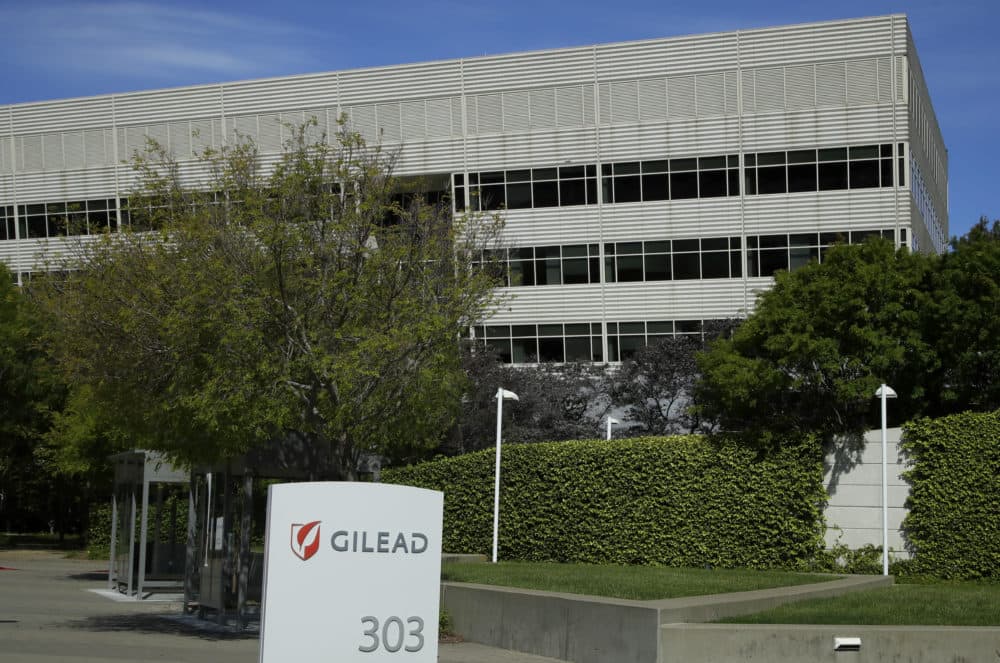Advertisement
Commentary
Ebola Patients Paved The Way For An Effective COVID-19 Drug. But Africans Probably Won't Get It

Long before the arrival of COVID-19, hundreds of patients in Liberia, Guinea and the Democratic Republic of the Congo (DRC) were treated for Ebola with an experimental medication called remdesivir. From 2016 to mid-2019, these patients joined phase two and three clinical trials that, sponsored by the National Institutes of Health, found the drug did not improve clinical outcomes.
Critically, however, the Ebola trials demonstrated that remdesivir was safe for human use. The African study participants’ courage paved the way for the NIH’s groundbreaking COVID-19 trial, which proved that remdesivir is the first effective treatment against this pandemic. Without their contributions, the NIH’s study might have started months later, leaving us without any proven therapy for COVID-19.
Here’s the problem: None of the African patients who made this possible — nor their fellow citizens — stand to have access to the medication when facing COVID-19.
While our global struggle against COVID-19 is shared, access to treatment is anything but. The DRC, for instance, has just five ventilators for 84 million people. Our hospital, one of many in Boston, currently has 250. Worse yet, as “donor” countries buy up ventilators, testing supplies and personal protective equipment, some like the United States have banned aid recipients from using funds to purchase masks and ventilators.

In many impoverished countries whose health systems were decimated by colonialism and economic extraction, hundreds of thousands of patients who develop severe COVID-19 may die for lack of access to the most basic human need: oxygen.
Where does remdesivir fit in, and why would access to a novel medication in high demand by rich countries be any different?
An international team of pharmacologists recently estimated that a single dose of remdesivir produced by a generic drug-maker should cost no more than 93 cents.
In late May, Gilead Sciences, which developed remdesivir, published another trial (for which one of us was an uncompensated co-investigator) demonstrating that a five-day treatment regimen was equally effective as 10 days. This suggests that the cost of treating COVID-19 with generic remdesivir should be approximately $5 — compared with the $3,120 Gilead will charge in high- and middle-income countries.
Advertisement
Expanding access to remdesivir for COVID-19 could save thousands of lives. This would only be possible, however, if supply chains could meet demand, and if the medication were affordable at scale. Neither prospect is assured.
In March 2020, the Food and Drug Administration approved Gilead’s orphan drug designation application, again relying on safety data from the Ebola trials. Gilead was granted an extended monopoly for remdesivir, potentially allowing it to charge anything it liked.
While the company subsequently relented to public pressure, forfeiting orphan drug status, the concern was hardly unprecedented. Gilead initially charged $1,000 per pill for its new hepatitis C medication, a price so unaffordable that many states restricted access to this life-saving therapy until a person developed advanced liver disease.
Gilead has since signed licensing agreements for remdesivir with five generic pharmaceutical companies (one of which, Mylan, is itself notorious for price gouging). Unfortunately, these agreements restrict access to generics for roughly half the world’s population, excluding middle-income nations like Brazil, which has the world’s second-highest COVID-19 case burden.
Gilead states that its “focus on providing access to medicines to people around the world has been unwavering.” Yet while the licensing contracts remain secret, Gilead clearly indicated that they are only “royalty-free until the World Health Organization (WHO) declares the end of the Public Health Emergency of International Concern regarding COVID-19, or until a pharmaceutical product other than remdesivir or a vaccine is approved to treat or prevent COVID-19, whichever is earlier.”

The terms raise several concerns. For example, if a vaccine that's only partially effective is approved, access to remdesivir would still be necessary. And what if the end of the WHO’s emergency declaration does not coincide with sustained COVID-19 reductions across regions with weakened health systems? Furthermore, the RECOVERY trial, which showed that the steroid dexamethasone reduced deaths from COVID-19, will soon be published, and preliminary drug agency approvals will likely follow.
These are critical loopholes that preserve Gilead’s ability to rescind its voluntary licenses and rapidly increase the price of remdesivir over the coming months.
What’s more, the U.S. purchased Gilead’s entire global supply of remdesivir on June 29th. With no generic companies manufacturing remdesivir yet, only American patients will have access as the pandemic explodes worldwide.
There is a better way. Gilead should offer an unrestricted license for remdesivir to the Medicines Patent Pool, a United Nations organization that facilitates generic manufacturing of patented medications at markedly reduced prices for low- and middle-income countries. Beyond expanding production, this would encourage fulfillment of the moral imperative to provide access to remdesivir for communities across Liberia, Guinea and DRC — without whom the drug would not be approved today — and would recognize our shared struggle.
After all, in 2011, Gilead granted the patent pool's first pharmaceutical license, an act of leadership that meaningfully advanced global access to HIV drugs like Gilead’s tenofovir. Yet by that point, tenofovir had been sold in the U.S. for a decade, while remaining inaccessible to the more than 10 million people who died of AIDS in Africa during that time.
While HIV kills slowly, patients succumb to COVID-19 within weeks — we cannot afford to wait.
Sixty-five years ago, the world anxiously sought hope as another infectious disease, polio, left thousands paralyzed annually. Following the discovery of a polio vaccine, Edward R. Murrow asked Dr. Jonas Salk, the vaccine’s inventor, “Who owns the patent?”
“Well, the people, I would say,” Salk answered. “There is no patent — could you patent the sun?”
In the midst of humanity’s greatest health challenge in a century, we hope the leaders of Gilead and other pharmaceutical companies remember Dr. Salk’s example as they develop novel treatments and vaccines, and choose to stand with the rest of us, both against COVID-19 and for one another.
Dr. Cameron T. Nutt is an internal medicine resident at Brigham and Women’s Hospital, and has served as a site co-investigator on two clinical trials of remdesivir for COVID-19. Dr. Robert A. Bonacci is a global health physician and recent graduate of the Doris and Howard Hiatt Residency in Global Health Equity and Internal Medicine at Brigham and Women’s Hospital. Dr. Wilfredo R. Matias is the chief resident physician in the Doris and Howard Hiatt Residency in Global Health Equity and Internal Medicine at Brigham and Women’s Hospital, and a fellow in global health at the Massachusetts General Hospital Center for Global Health. Meredith L. Kernan works in business development at Mass General Brigham; she previously worked for a non-governmental organization on antiretroviral therapy pricing and procurement across Africa. Views are their own.